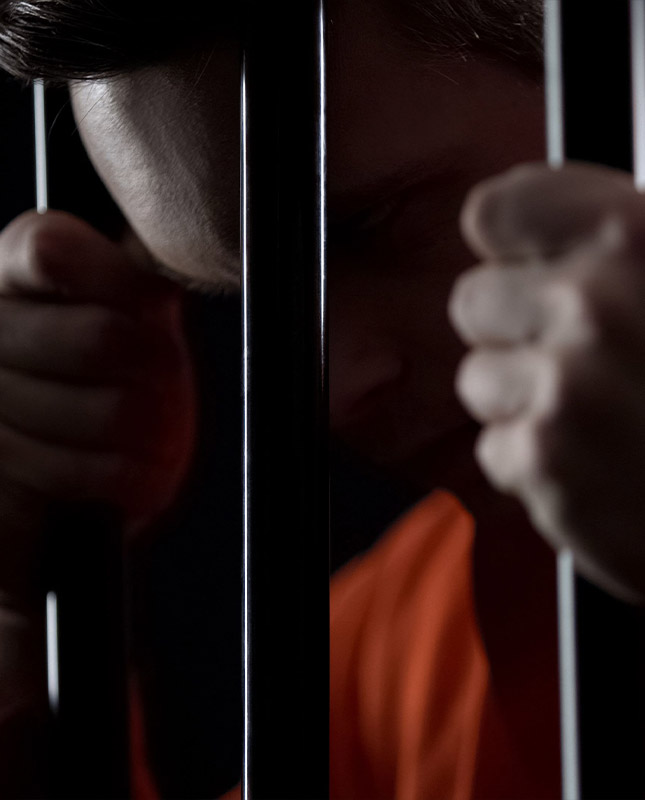Additional Links
- Criminal Lawyers With Payment Plans
- Common Mistakes to Avoid if You’re Accused of Homicide
- How a Homicide Lawyer Builds Your Defense Strategy
- Choosing the Right Violent Crime Defense Attorney
- Understanding Violent Crime Defense
- Missouri Criminal Court Process
- RSMo §565.020 - First Degree Murder
- RSMo §565.021 - Second Degree Murder

What Are Capital Crimes in Missouri?
A capital crime is any offense that qualifies for the death penalty under Missouri law. While all capital crimes are class A felonies, not all class A felonies qualify for capital punishment. These are the most serious criminal charges, reserved for offenses deemed particularly heinous or premeditated.
Protect your freedom and your life. Call Combs Waterkotte now at (314) 900-HELP.
In nearly all cases, a crime must result in death for prosecutors to seek the death penalty. This means that, except for treason (RSMo § 576.070), first-degree murder (RSMo § 576.070) is the only crime that can lead to the death penalty.
How Is the Death Penalty Decided in Missouri?
In Missouri, if someone is convicted of first-degree murder and the death penalty is on the table, the judge or jury must go through a specific process to decide whether the person should be sentenced to death or life in prison without parole.
- Prosecutors must prove at least one "aggravating factor" beyond a reasonable doubt (listed below).
- If an aggravating factor is proven, the jury or judge will then decide if the overall case justifies a death sentence or life without parole.
- The jury must consider all evidence, including anything that might lessen the punishment (mitigating factors like mental illness or lack of a criminal record).
- If a jury is involved, the judge will not tell them which specific evidence counts as aggravating or mitigating—each juror decides for themselves.
What Can Make a Murder a Death Penalty Case? (Aggravating Factors)
Not every conviction for first-degree murder is eligible for the death penalty. Missouri law requires that the jury finds the state proved one of 17 aggravating factors beyond a reasonable doubt:
- The defendant has a history of violent crimes – If the person was previously convicted of first-degree murder or another serious violent offense.
- The defendant committed more than one murder – If the killing happened while committing or attempting another homicide.
- The defendant put multiple people at risk – If the murder was carried out using a weapon or device that endangered multiple lives (e.g., a bomb or mass shooting).
- The murder was for money – If the defendant killed someone for financial gain or to collect money for someone else.
- The victim was a public official – If the victim was a judge, prosecutor, elected official, or law enforcement officer and was killed because of their official duties.
- The defendant hired a killer or was a hired killer – If the murder was a murder-for-hire situation.
- The murder was especially cruel or gruesome – If the crime involved torture, extreme cruelty, or depravity.
- The victim was a first responder – If the victim was a police officer, firefighter, or peace officer killed while on duty.
- The defendant was in custody or had escaped from jail – If the murder was committed by someone already in prison, jail, or police custody.
- The murder was committed to avoid arrest – If the defendant killed someone to prevent their own arrest or to help someone else avoid being caught.
- The murder happened during another serious crime – If the murder was committed while carrying out rape, sodomy, burglary, robbery, kidnapping, or a major drug-related felony.
- The victim was a witness – If the person was killed to stop them from testifying in court.
- The victim was a prison employee or inmate – If the victim was a corrections officer or inmate killed in a prison or jail.
- The murder happened during a hijacking – If the victim was killed during the hijacking of a plane, train, bus, or other public transportation.
- The murder was meant to cover up another felony – If the defendant killed someone to hide another major crime.
- The murder was meant to stop a criminal case – If the killing was done to prevent someone from reporting or helping prosecute a crime.
- The murder was part of gang activity – If the crime was committed as part of an ongoing criminal street gang operation.
If at least one of these 17 factors is proven beyond a reasonable doubt, prosecutors can seek the death penalty.
If none of these factors apply, the maximum sentence is life in prison without parole instead of execution.
What Can Avoid the Death Penalty? (Mitigating Factors)
Even if the jury finds an aggravating factor, they must also consider mitigating factors—circumstances that might lessen the defendant’s responsibility and justify a life sentence instead of execution:
- The defendant has little to no criminal history.
- The defendant was under severe emotional distress when the murder happened.
- The victim willingly participated in the act (rare but possible).
- The defendant played a minor role in a murder committed by someone else.
- The defendant was forced or pressured into committing the crime.
- The defendant had mental illness or cognitive impairments that affected their ability to understand their actions.
- The defendant was very young at the time of the crime.
Even if an aggravating factor is present, the jury must weigh all mitigating factors before deciding on a sentence.
If the jury cannot unanimously agree on the death penalty, the sentence is automatically life in prison without parole.
Charged with a capital crime? Your life is on the line. Call Combs Waterkotte at (314) 900-HELP for an aggressive legal defense.
How Capital Offense Trials Work in Missouri
Under Missouri Revised Statute §565.030, prosecutors can decide to waive the death penalty, and the case proceeds like any other criminal trial.
What Happens If the Death Penalty Is Being Considered?
If prosecutors seek the death penalty, the trial happens in two separate stages:
- Guilt or Innocence Trial
- The jury (or judge) decides whether the defendant is guilty or not guilty of first-degree murder.
- If found guilty of a lesser homicide charge (like second-degree murder or manslaughter), the case proceeds like any other felony sentencing.
- If found guilty of first-degree murder, the trial moves to Stage 2.
- Sentencing Trial (Death Penalty or Life Without Parole?)
- Prosecutors present evidence of "aggravating factors" (such as multiple victims or extreme cruelty).
- The defense presents "mitigating factors" (such as mental illness or lack of criminal history).
- The victim’s family may provide impact statements about how the crime affected them.
- The attorneys argue whether the defendant should be sentenced to death or life in prison without parole.
- The jury (or judge) makes the final sentencing decision.
When the Death Penalty Cannot Be Imposed in Missouri
The jury (or judge) must sentence the defendant to life in prison without parole if:
- The defendant is intellectually disabled (proven by medical evidence).
- The jury does not find at least one aggravating factor beyond a reasonable doubt.
- The mitigating factors outweigh the aggravating factors (meaning the defendant’s background, mental state, or circumstances justify a life sentence instead).
- The jury decides not to impose the death penalty, even if aggravating factors exist.
How the Prosecution Builds a Death Penalty Case in St. Louis
Prosecutors aggressively pursue the death penalty in Missouri, using all available resources to secure a conviction and the maximum sentence. Their approach typically includes:
- High-Profile, Resource-Heavy Investigations – Capital cases receive extensive law enforcement attention, often involving multiple agencies.
- Extensive Use of Expert Witnesses – The prosecution relies on forensics, psychiatry, ballistics, and digital evidence experts to strengthen their case.
- Confessions, Witness Testimony & DNA Evidence – Statements from the accused, eyewitnesses, or forensic evidence are key to securing a conviction.
- Push for the Harshest Sentence Possible – Prosecutors will emphasize aggravating factors to argue for death over life without parole.
Common Defenses Against Capital Charges in St. Louis
Because the stakes are life and death, an aggressive defense strategy is essential. Some of the most effective defenses in capital cases include:
- Wrongful Accusation / Mistaken Identity – Many death penalty cases are built on weak forensic evidence or unreliable eyewitness testimony. Establishing an alibi or alternate suspect can undermine the prosecution’s case.
- Self-Defense or Justifiable Homicide – If the accused acted to protect themselves or others, the killing may be legally justified.
- Mental Health / Competency Defense – If the defendant suffers from severe mental illness or intellectual disability, the death penalty may be off the table.
- Illegal Police Practices – If law enforcement used coerced confessions, unconstitutional searches, or violated Miranda rights, key evidence can be thrown out.
- Not Guilty By Reason of Insanity - The defense may be able to demonstrate that you did not know what you were doing when you committed the act, or did not understand it was wrong.


























